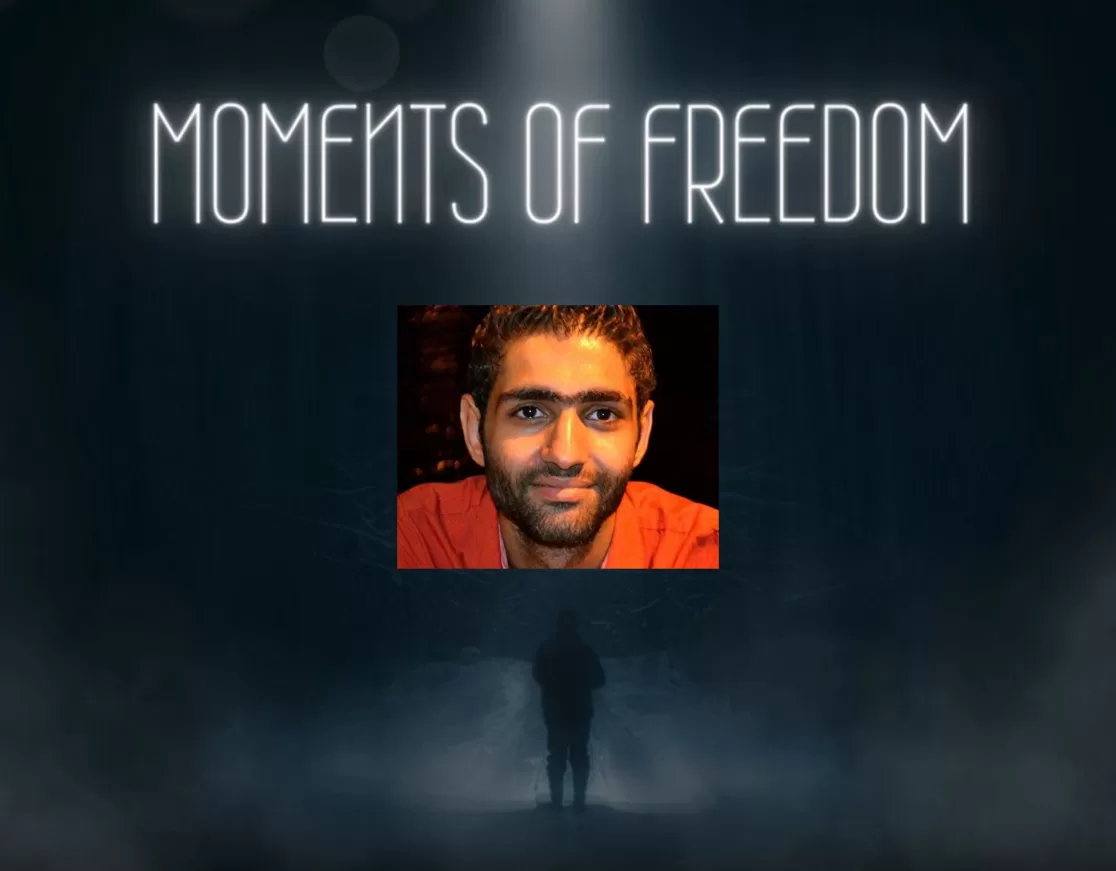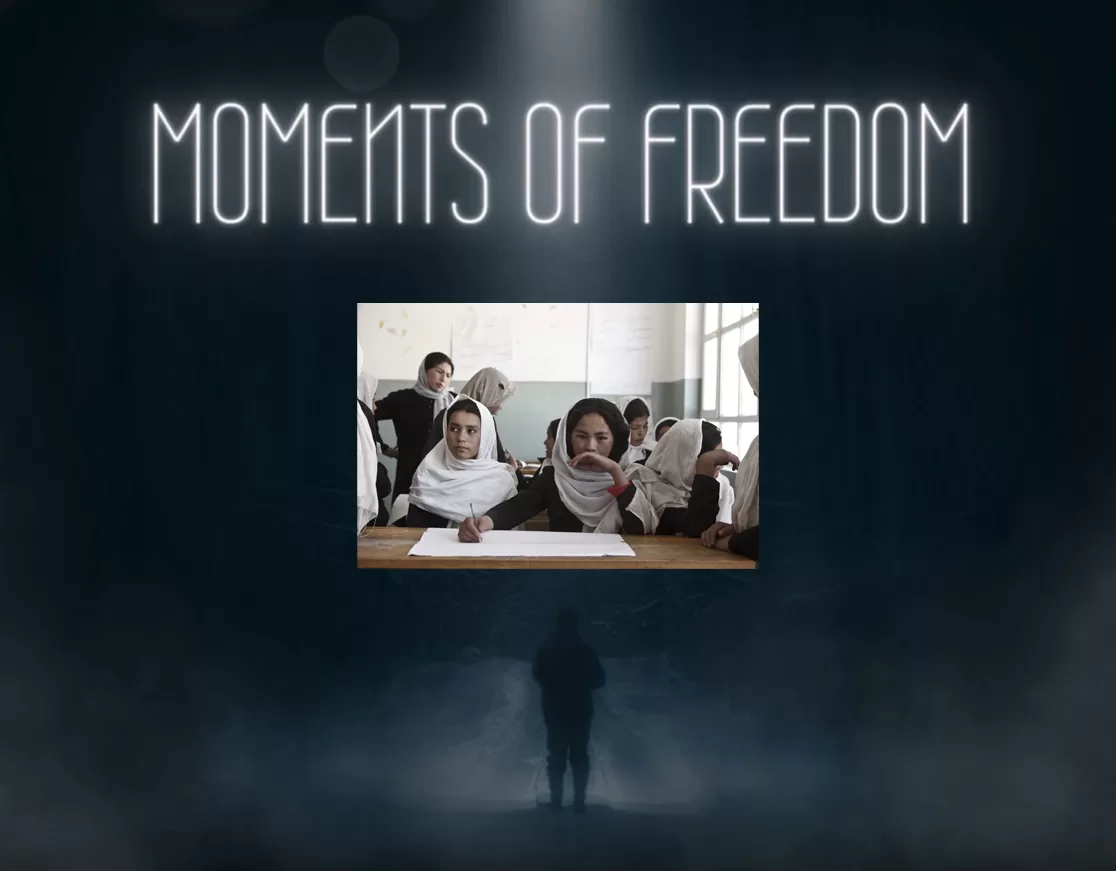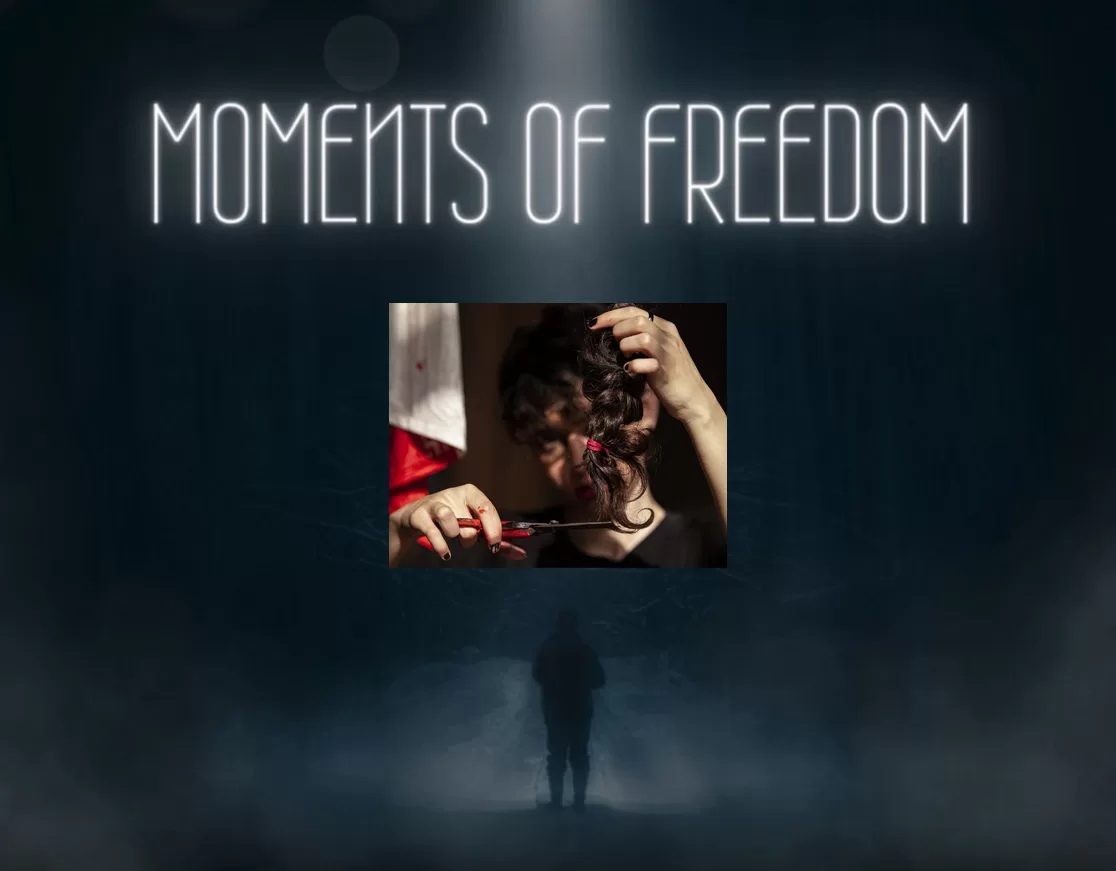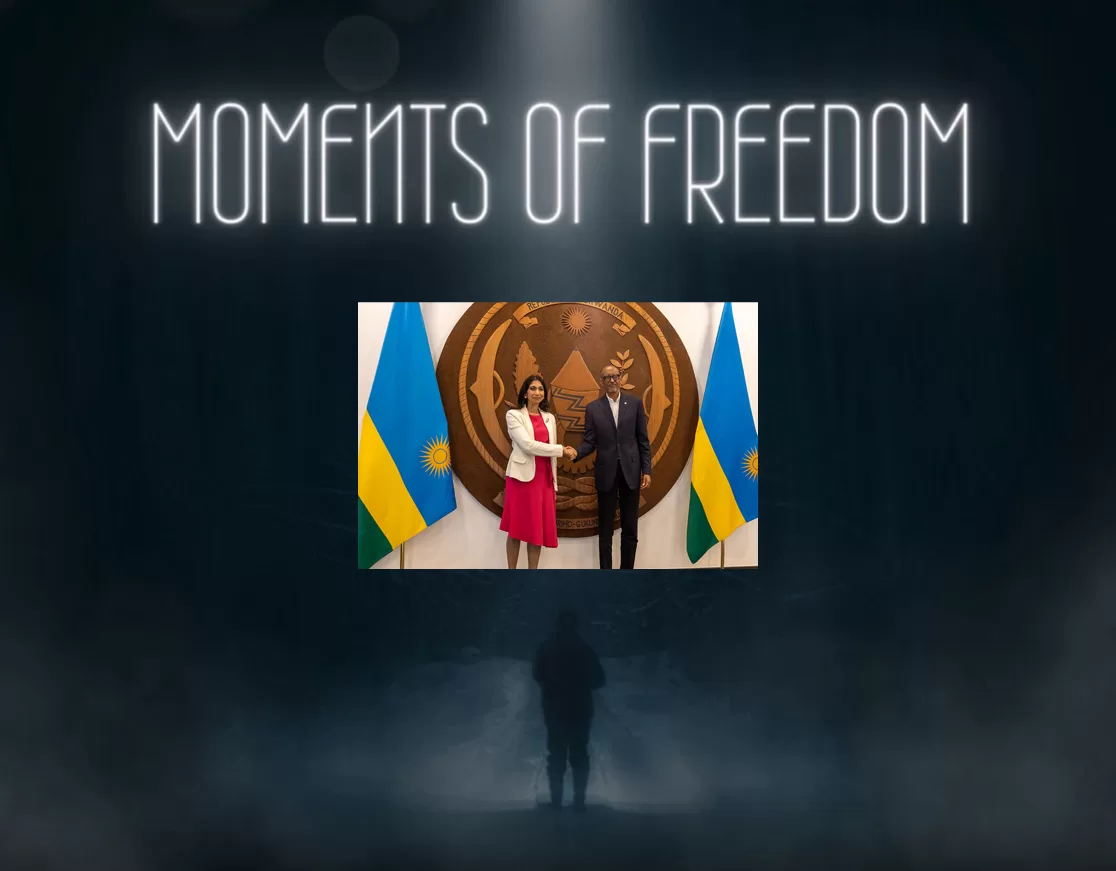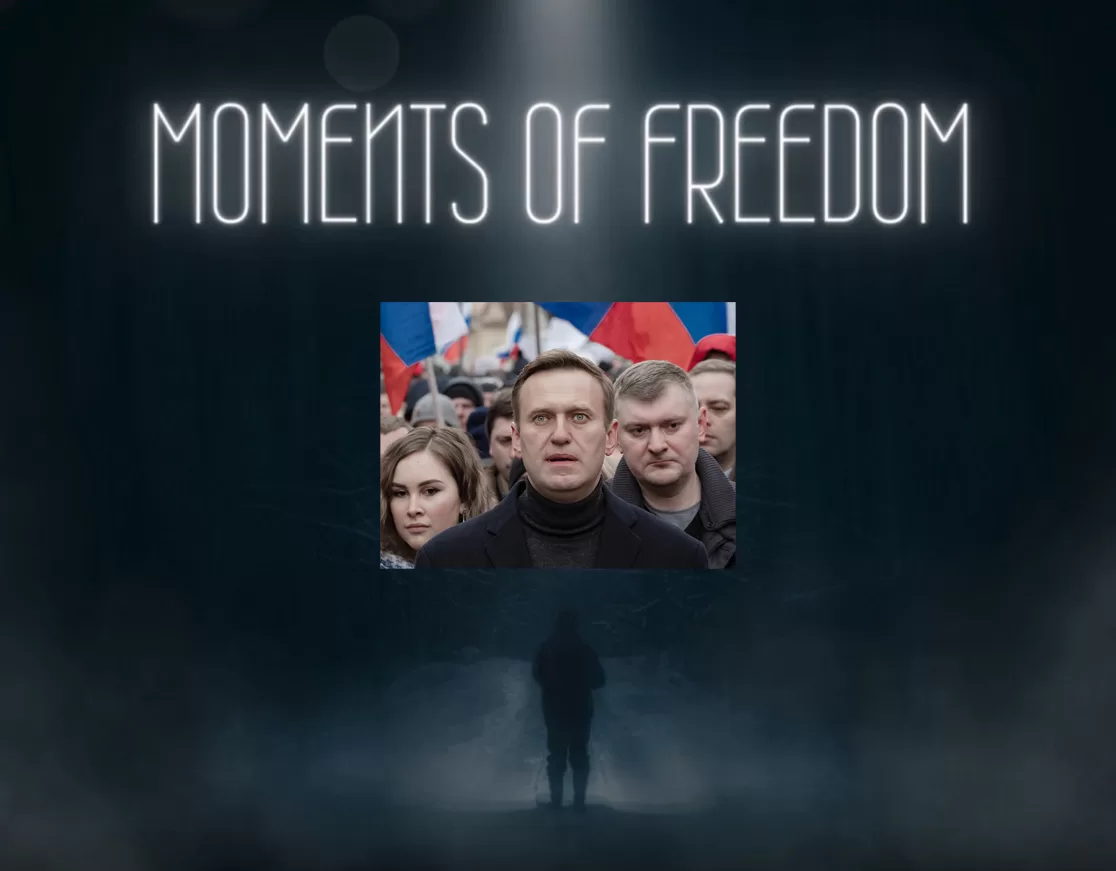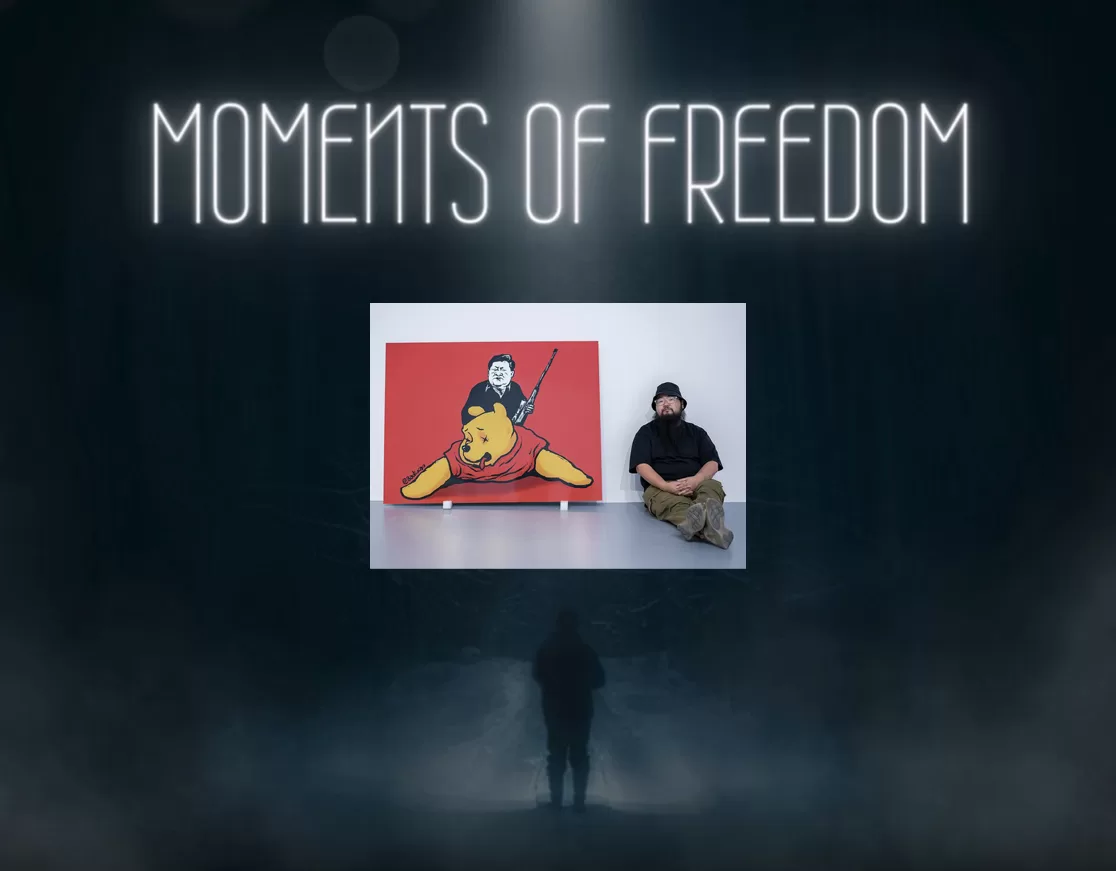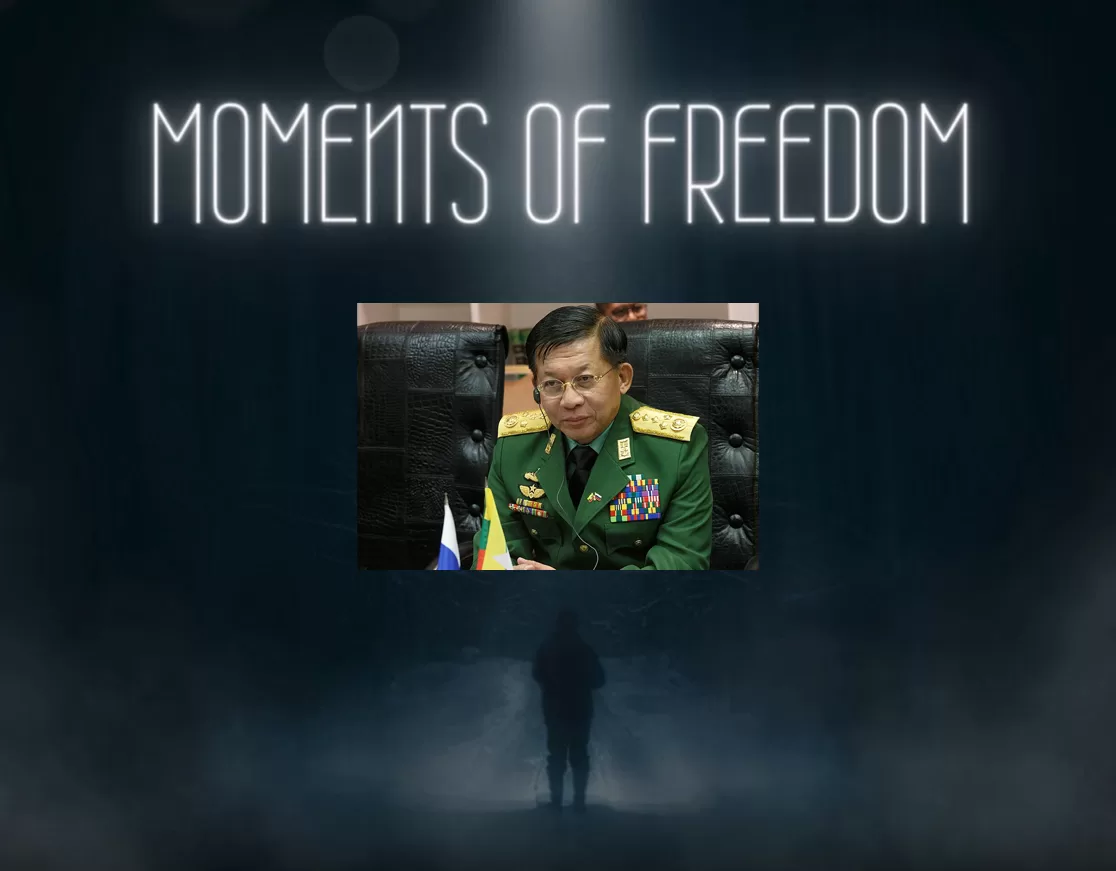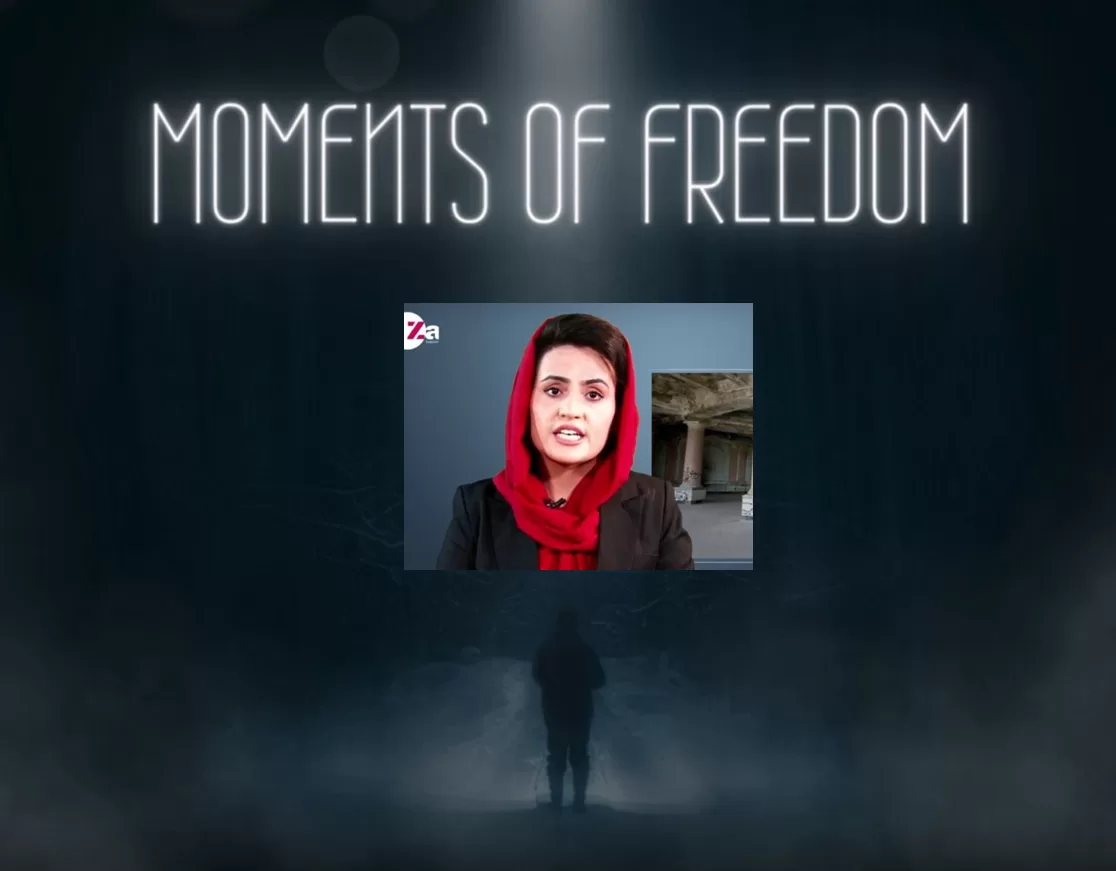4 Dec 2023 | Afghanistan, Burma, China, Egypt, Iran, Poland, Russia, Rwanda
Moments of Freedom was Index on Censorship’s 2023 year-end campaign where we asked our readers and supporters to vote on the moments during the past twelve months that have given them hope that the world is not as bad as it sometimes feels.
Index’s staff and board looked back over the year and highlighted their moments where freedom of expression has been strengthened or celebrated. This could have been through the introduction of new legislation supporting free expression, the release of a prisoner of conscience or the escape of a dissident from tyranny to a safe third country.
Egyptian blogger Abdelrahman "Moka" Tarek reaches safety
Launch of the Begum Academy
First anniversary of women's protests in Iran
Rwanda declared "not a safe country"
Alexei Navalny's reaction to latest charges - Russia
Badiucao exhibition in Warsaw
Silent strike protests in Myanmar
Release of Mortaza Behboudi and Matiullah Wesa
Afghan TV present Spozhmai Maani finds refuge in France
29 Nov 2023 | Afghanistan, Asia and Pacific, News and features
It is accepted around the world that children and young people have a right to education. But for girls in Afghanistan, this is not the case.
In 2021, the Taliban seized power after launching a military offensive which lasted three and a half months. One of the first measures they imposed was a ban on girls over the age of 12 returning to school. A year later, they extended this ban to include universities, leaving millions of Afghan girls without any access to higher education at all.
Accessing education was already a struggle prior to the Taliban’s return to power due to the scarcity and inadequacy of learning facilities for girls. It is estimated that 30% of girls in the country have never even entered primary school. Now, in light of the current ban, receiving education beyond this will be close to impossible.
The Begum Academy has been launched in an attempt to combat this.
The Begum Academy is an online platform aimed at female students from seventh to twelfth grade, which offers the entire Afghan curriculum free of charge by subject based on the official school books from the Ministry of Education. The idea behind the initiative is that girls will be able to teach themselves the Afghan school curriculum from their own homes in order to improve their future prospects even if they aren’t allowed to physically attend school.
A spokesperson for the organisation, who preferred not to be named, spoke to Index about the importance of this movement for a country with the lowest ranking for women’s inclusion, justice and security in the world.
“If you take into account Covid and the Taliban in power at the moment, girls have been out of school for basically five years,” he explained.
“The idea is to give them hope. To be a girl in Afghanistan today is hell. There’s absolutely no future. The idea for us is to say okay, you’re forbidden to go to school, you’re not forbidden to learn.”
The platform contains more than 8,000 videos from a team of teachers and producers covering the entire school curriculum in Dari and Pashto, chapter by chapter, which took many months to put together.
“Recording videos, editing them, working the content. It’s an enormous task,” admitted the Begum Academy correspondent. “Everybody told us that it was crazy, that it was impossible. We decided to go for it.”
The group is also endeavouring to break down other barriers faced by those in Afghanistan who want to learn, such as the lack of internet access in a number of homes across the country. They note that this is an issue they are actively “working on” to try and ensure that as many girls as possible are able to access the resources provided.
This is a sizeable task. Since the Taliban seized power in Afghanistan in 2021, internet connection in the state has been limited. Gallup’s 2022 World Poll found that just 15% of the Afghan population said they have access to the internet. This is potentially due to costs of Wi-Fi or electronics considering more than 90% of the country’s population is affected by poverty.
There is also a significant gender disparity when it comes to internet access, with only 6% of women having access compared to 25% of men. Those living in cities were also more likely to use the internet than those in rural areas.
Thankfully, the Taliban do not seem to have any plans to ban the internet completely. They even use the internet, which they previously rallied against due to their suspicions of what they deemed to be Western technology, to communicate with the world on social media.
According to a 2023 report by the Atlantic Council, the approximate $77 million in taxes collected by the Afghan government from internet and mobile phone operators since taking over is a crucial source of income. The Taliban have even announced plans to upgrade to 4G networks - a hopeful sign on the internet access front.
However, the Taliban have also been accused of limiting internet access for their own gain, allegedly suspending connectivity in Kabul and other areas on a regular basis in order to curb opposition, as well as blocking millions of websites for “immoral” content. There is therefore a fear that even if internet access is available, the militant group can restrict the content available on it.
Nonprofit group Access Now, who advocate for digital rights, warns that even those who can access Google in Afghanistan are restricted by the fear of surveillance due to the ability of the Taliban to monitor browser history. Debilitating internet speeds and frequent power cuts may also hinder proceedings.
Despite concerns about the accessibility of the platform in the long-term, the overall feeling regarding the Begum Academy’s launch is positive today.
“We still have a lot of things to do, but I think this project can genuinely help,” the platform’s spokesperson said. “Once the word has spread, and it’s started already on social media, we can expect something quite big.”
You can find the Begum Academy here: https://begum-academy.org/fa/
You can also access online materials on their YouTube channels:
https://www.youtube.com/@Begum.Academy1/playlists (Pashto)
https://www.youtube.com/@begum.academy/playlists (Dari)
26 Oct 2023 | News and features, Opinion, Ruth's blog
There are times when it feels that the earth is shifting upon its axis. When the gravitational pull of events is so strong that our news curves towards it. Moments when even the light of truth gets sucked towards the darkness caused by war. Although some will try to look away, they soon discover that there is no way of doing so: the sorrow, the heartache and suffering forbids our humanity to ignore.
The current war in the Middle East is one such event. As it continues to rightly dominate global news, we need to ensure that tyrants aren’t ramping up their attacks on their citizens while the world is looking elsewhere. The role of Index on Censorship is to try and provide a telescope to the public so they can witness where their values are under attack. Failure to do so would only secure further silence for those campaigning for freedom of expression.
That’s why this week I want to highlight some of those stories you may not have heard, but so desperately need to be told.
Freedom of expression abuses continue in India. It has become clear that the Indian authorities are using counterterrorism law and financial regulations to silence journalists, human rights defenders, activists and critics of the government, including 12 international human rights groups. At the start of October, the authorities arrested the editor of NewsClick, Prabir Purkayastha and human resources chief Amit Chakravarty. This was quickly followed by the government raids on 46 journalists associated with the news outlet. A depressing spiral of acts are being committed by the Indian authorities and any criticism of the Modi government is met with the heaviest of action.
The bombing of Syrian cities by Russia continues as they seek to shore up the Assad regime. A two-year-old child was killed in a Russian air attack on a family home in the village of Jaftallak Haj Hamoud, north of Jisr al-Shughour, according to the Civil Defence organisation and confirmed by medics and local reports. In a nation where news is so tightly controlled it’s important that we share these stories, as the actions of Putin around the world only deliver misery.
Only a week after a huge earthquake, Afghanistan is now faced with another. The epicentre is thought to have been just outside Herat, ending hopes of further rescues and a humanitarian crisis will continue to deepen in a country where rights, freedoms and liberties have all but disappeared following the fall of Kabul. More than 90% of the people killed in the last earthquake were women and children with the death toll expected to be over 2,000 people.
India, Afghanistan, Syria: three nations who are faced with immense struggles. Some caused by natural disaster, others human-inflicted. But the commonality remains the same. Little or no freedom of expression in these nations hampers our ability to understand and help those in need.
Now more than ever these people need to be heard and Index will always speak up for those without a voice.
26 Oct 2023 | Afghanistan, News and features
Today, Matiullah Wesa walked out of an Afghan prison. The co-founder of Pen Path, an organisation forging routes to education in Afghanistan, has spent the last seven months behind bars. Only recently has his mother been allowed to visit him.
Until 27 March this year, Wesa was riding a motorbike around Afghanistan, a bookcase and computer built into the mobile classroom, to areas where schools do not exist. He read from books to cohorts of girls, locked out of education. And he campaigned for schools to reopen. All of these activities put him in the spotlight.
On his way home from evening prayer seven months ago, Wesa was arrested. Then his house was raided. For much of his imprisonment, Wesa’s family were not allowed to speak with him. Today, his brother and co-founder of Pen Path, Attaullah Wesa, spoke to Index from Toronto about the news. He too is at risk from his work with Pen Path, and arrived in Canada in September.
“I am so happy. I couldn’t sleep last night, I was waking with Matiullah in my dreams. But I don’t know about [the lack] of sleep, I feel very well,” he said.
“I spoke to him when he came out from the jail, just for two minutes — ‘Hi, how are you, how was the jail?’ He told me, ‘No problem,’” Attaullah Wesa said, able to make light of the situation. Some other family members are now with him, and he will now go for health checks. “He looks in good spirit.”
An hour before his brother’s release, Attaullah Wesa had a phone call from his brother, telling him what was about to happen.
Since Matiullah Wesa was released earlier today, his brother’s phone has rung constantly, with messages of congratulations. Former Afghan president Hamid Karzai called him personally to tell him how happy he was. Further calls came from members of parliament around the world, human rights organisations and the press. The international community, he explained, has put a lot of pressure on the Taliban about his brother’s imprisonment.
Pen Path was established in 2009 to create greater access to education, and make sure all children have access to learning and books. Since the Taliban takeover, this job has become more and more difficult, with access to education for women and girls becoming a priority. During the recent earthquakes near Herat, Pen Path have forged on, speaking with people in affected areas about their needs.
This work has continued this year, but without Matiullah Wesa. Just last week, he was announced as the winner of the campaigning category of the Index on Censorship Freedom of Expression Awards. With Wesa behind bars, his brother sent a video message to receive the award, saying that the award was vital in “Letting Matiullah know that he is remembered and won’t be forgotten.”
Baroness Helena Kennedy took to the stage in London to announce Wesa as the winner, echoing the voices of campaigners inside Afghanistan who are calling the current situation a gender apartheid. She said: “It’s very important that we don’t forget Afghanistan.”
With his brother out of prison, Pen Path will continue its work, Attaullah Wesa explains.
“Now we will start in a good spirit, because now the international community knows more about us,” he said. “We will also come with the international community and we will deal some pressure to the Taliban to accept the basic right of girls and women of Afghanistan.”
He ends the call to Index with a message: “For those social activists who are in the prison of the Taliban, they must release them soon.”

